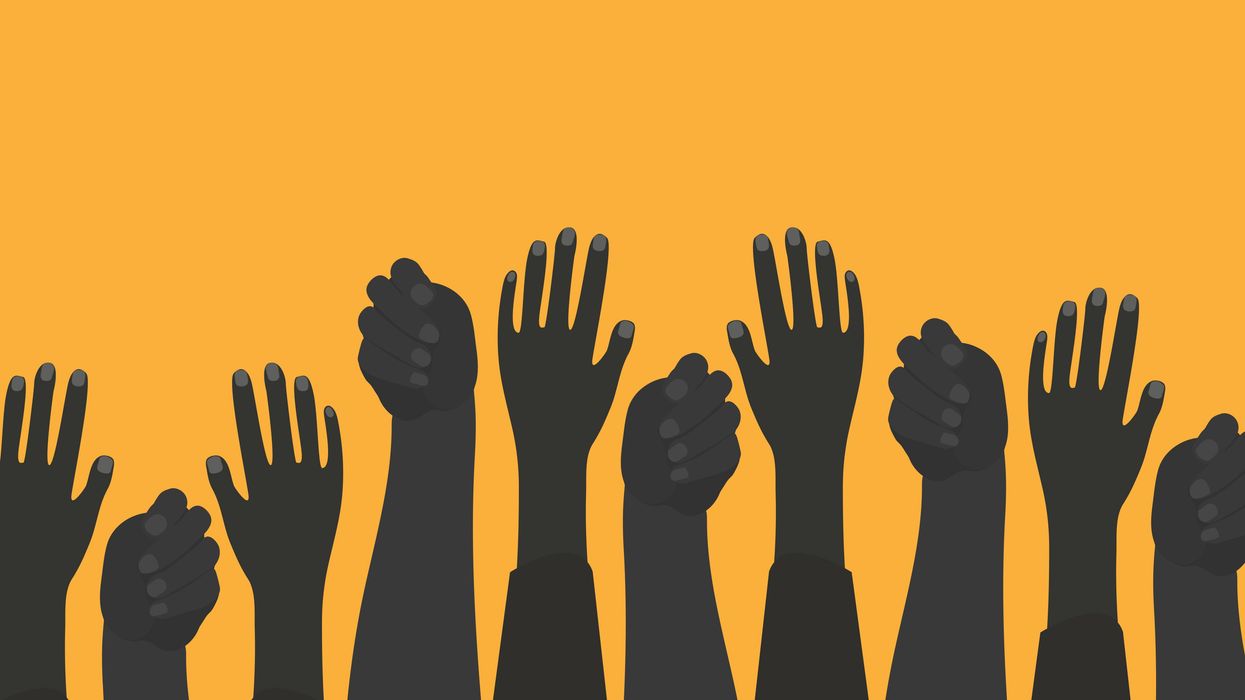It has been nearly two years since we wrote an op-ed for The Fulcrum titled, "Diverse people must be in every room where decisions are made." We wrote of the need for all Americans to take a stand and commit to the health of our nation. We supported taking a stand for the fact that we are a diverse nation and to thrive as a people we must provide room for more diverse perspectives.
With Juneteenth upon us, it is time to review what has transpired in our nation since our initial writing. Juneteenth, the annual recognition of the moment when the remaining enslaved Black Americans were told they were free in 1865, came two and a half years after the Emancipation Proclamation went into effect on Jan. 1, 1863. Now is a perfect time for us to reflect on the last two years of our journey together as reformers in the healthy democracy movement.
Juneteenth's connection to the democracy issues we face today has never been more apparent given the issues of police brutality, economic inequality and voter suppression laws. The brutal deaths and murders of citizens by those with whom we've entrusted authority have shaken the two of us to our core.
But has it shaken our nation to its core? Has anything changed? Are we actually more divided than we were two years ago?
African American Emancipation Day (another name for Juneteenth) and Independence Day are within weeks of each other, so let's use this "civic season" to explore the possibilities. Let's depart from the normal rhetoric that so divides us as a people. Let's explore with an awareness of how our choices have changed — or not changed — since the founding of our nation, in a manner that moves us forward.
In just the first six months of 2021, we have experienced the Jan. attack upon our Capitol, followed by the passing of restrictive voting legislation in many states across the country. These two events in just six months are together an unprecedented assault upon our democracy. Will it be the wakeup call we need? How we respond as a nation now will set the path for many years to come.
The response of 50 of the biggest corporations in America, which stated that voting is a foundational right in America and expressed opposition to the states' legislative restrictions, and their support for federal legislation to protect voting access are step sin the right direction.
Whether this response by corporate America is a sea change in the recognition of the inherent dignity, and of the equal and inalienable rights, of all citizens remains to be seen. We the People need to become more involved to ensure this is not a fleeting exercise in self-interest.
Is HR 1, the For the People Act, doomed for failure as just another partisan battle between the left and the right? Or will we commit to expanding citizen access to the ballot box by reducing the influence of big money in politics, strengthening ethics rules for public servants and implementing other anti-corruption measures for the purpose of fortifying our democracy?
These questions are not rhetorical; they are questions for all of us. It is imperative that the urgency of the moment finally moves We the People in the direction of realizing that property rights and human rights do not need to be in conflict with one another. What if they are aligned? What might corporations and government working together on a "human's first" agenda for the United States result in? How might citizens become more involved to ensure that our democracy is protected and flourishes?
There is a burgeoning movement in America called stakeholder capitalism, where companies seek long-term value creation by focusing on profits as well as the needs of the communities in which they live and the environment that we all share. It's a new take on the B-corporations that continue to grow, in alignment with healthy planet goals and the triple bottom line movement from the 1990s.
If corporations are willing to explore re-aligning, can we as Americans do so as well? Can we be the generation that we have been waiting for?
Let us start the discussion today. We are urging the readers of this article to start a discussion on any components of this writing that you wish to speak to. On this week of Juneteenth let us know your thoughts on how Justice, Opportunity, Diversity, Inclusion, and Equity (JODIE principles) impact your vision of a healthy functioning society. What are the elements of a functioning society that are most important to you and what do you think We the People can do to make that happen?



















Trump & Hegseth gave Mark Kelly a huge 2028 gift